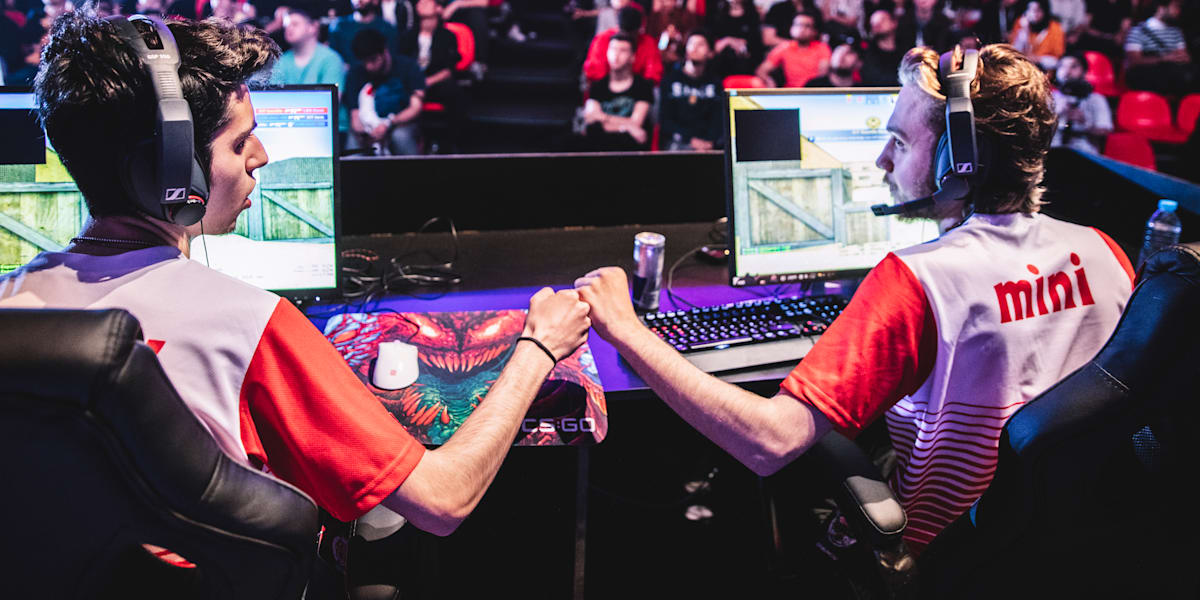Dasiwang: Your Gateway to Trending Insights
Stay updated with the latest news, trends, and insights across various topics.
CS:GO Esports: More Than Just a Game, It’s a Digital Revolution
Dive into the world of CS:GO esports and discover how this thrilling game is shaping a digital revolution. Don't miss the action!
The Rise of CS:GO Esports: How It Transformed the Gaming Landscape
The emergence of CS:GO esports has significantly transformed the gaming landscape, drawing millions of players and spectators alike into its virtual arenas. Since its launch in 2012, the game has become a cornerstone of the esports industry, showcasing extraordinary talent during events like Major Championships. These tournaments not only highlight the incredible skill of professional players but also offer substantial prize pools, often exceeding a million dollars, which have attracted a wide array of talent from around the globe. The success of CS:GO has paved the way for other games, demonstrating that competitive gaming can achieve mainstream recognition and commercial viability.
As the CS:GO esports scene has evolved, it has fostered a vibrant community that thrives on strategy, teamwork, and intense competition. Numerous organizations have established professional teams, creating a pathway for aspiring gamers to transition from casual play to the competitive realm. In addition, the rise of streaming platforms and social media has enabled fans to connect with their favorite players, changing how audiences engage with esports. This dynamic synergy between players, fans, and content creators has shifted the perception of gaming from mere entertainment to a serious athletic endeavor, further solidifying CS:GO’s place in the esports hierarchy.

Counter-Strike is a popular tactical first-person shooter that has captivated millions of players around the world. The game emphasizes teamwork, strategy, and skill, making it a staple in the competitive gaming scene. Players often seek to customize their experience, including how to change crosshair in cs2 for better aiming precision and personal preference.
Understanding the Competitive Scene: What Makes CS:GO Esports Unique?
The competitive scene of CS:GO esports is particularly unique due to its blend of tactical depth and fast-paced action. Unlike many other esports, CS:GO has a rich history that dates back to its roots in the original Counter-Strike series, which has cultivated a dedicated fanbase and a robust tournament structure. This game requires not only exceptional individual skills but also a deep understanding of teamwork and strategy, making it a dynamic environment where players must constantly adapt to their opponents.
Moreover, the economic system within CS:GO adds an additional layer of complexity that is seldom seen in other esports. Teams must manage their in-game economy wisely, deciding when to purchase weapons and equipment or save their resources for future rounds. This strategic element is what sets a successful team apart, allowing them to execute intricate tactics that can outmaneuver their opponents. Understanding these nuances is essential for anyone looking to grasp what makes CS:GO esports a unique and thrilling spectacle.
Are CS:GO Tournaments the Future of Digital Entertainment?
The rise of competitive gaming has transformed the landscape of digital entertainment, with CS:GO tournaments leading the charge. These events not only showcase elite skill but also bring together a global audience. As viewership for such tournaments grows exponentially, platforms like Twitch and YouTube have become battlegrounds where fans engage with their favorite teams and players. The immersive experiences these platforms offer, including live commentary and interactive features, make CS:GO tournaments more than just simple competitions—they are a new form of entertainment that captivates millions.
Furthermore, the financial backing and increased sponsorship in the esports industry indicate that CS:GO tournaments are not just a passing trend. Companies are investing in these tournaments as a marketing strategy, tapping into a lucrative demographic of tech-savvy consumers. According to recent statistics, the esports audience is projected to surpass 500 million by 2024, solidifying its place in mainstream culture. With this level of engagement and the evolution of digital platforms, it’s clear that CS:GO tournaments are not merely a phase; they represent the future of interactive digital entertainment, engaging fans in unprecedented ways.